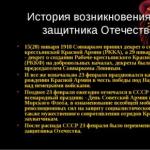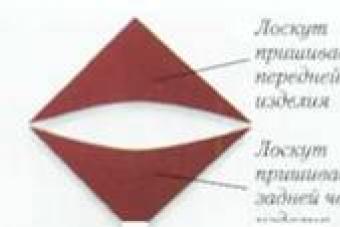It has long been no secret that breastfeeding brings invaluable benefits to the baby. All maternity hospitals provide support for natural feeding. Magazines for young mothers devote many pages to the topic breastfeeding.
It has long been no secret that it brings invaluable benefits to the baby. All maternity hospitals provide support for natural feeding. Magazines for young mothers devote many pages to the topic of breastfeeding.
You decide to give your baby all the health benefits you can and breastfeed him. Often young mothers are tormented by the issue of their own nutrition. It is known that food for a nursing mother should be as healthy and nutritious as possible, but at the same time not cause harm to the baby.
First of all, a nursing mother needs to eat healthy and varied foods. After all, it is with food that our body receives the nutrients that mother and baby now so need. You should definitely eat meat as a source of animal protein. Also required in the diet of a nursing mother fermented milk products, hard cheeses, cereals, vegetables and fruits. The cooking method does not allow frying. Vegetables and meat should be stewed, boiled and baked. Only apples are allowed as the first fruit, and even those are best baked in the oven. Then you don’t have to do this and you can include other fruits in your diet.
It is recommended that a nursing mother receive food several times a day, but in small quantities. You shouldn't overeat either. It is advisable to have a small snack before feeding your baby. It is believed that this amount of milk will increase. In addition, such a diet for a nursing mother is also convenient for the woman herself, since it is much more convenient and healthier to eat in a calm environment when she is sleeping. This recommendation is especially appropriate for women with children under six months of age.
The diet of a nursing mother should be varied.
If a nursing mother’s diet lacks any healthy product, this can even lead to vitamin deficiency in her and her child. Therefore, the menu of a nursing mother should not be monotonous. It is not recommended to follow mono-diets (diets that involve feeding a nursing mother only one product), even for a short period of time. This can lead to a decrease in proteins, fats, carbohydrates and vitamins in a woman’s body and in her breast milk, respectively. And if a strong adult body can still cope with such stress, then children's body will suffer. Moreover, the baby may refuse to breastfeed and will have to switch to breastfeeding, which can lead to gastrointestinal problems in

child. In addition, infant formula is not cheap. The nutrition of a nursing mother plays a huge role in the development of the child. Even such “dubious” foods as cucumbers should be consumed, but only in small quantities. One of the basic principles of nutrition for a nursing mother is the gradual introduction into the diet of foods that, on the one hand, are required by the body, and on the other, can cause trouble for the baby. This principle especially applies to the nutrition of a nursing mother who has a child under 3-4 months, during the period of infant colic and other intestinal disorders in the baby.
Compliance will help you avoid many problems and get only joy and pleasure from breastfeeding and motherhood.
What should you eat to make milk nutritious for your baby?
The period when you breastfeed is absolutely normal and does not require any special sacrifices. Make sure your diet is healthy and balanced. Do not include chemical additives in your diet - seasonings, bouillon cubes, etc.
But don’t limit yourself in food. You should not feel hungry, otherwise you will experience loss of strength and depression. And the baby needs a healthy and happy mother.
Scientific studies conducted in third world countries confirmed that even with severe depletion of the body, mother’s milk contains a set of all necessary elements for a child.
Most often, allergic reactions and bloating in a child occur due to the fact that the mother does not know what is harmful to herself. large quantities. Therefore, you need to carefully select acceptable products for yourself and consider each of them individually. But there is a list of products with which you should be extremely careful:
Alcohol is not safe under any circumstances. 
-Cow's milk can cause allergies in both you and your child. Try not to consume it in its pure form; it is better to give preference to fermented milk products.
Red vegetables and fruits, exotic fruits are much less digestible and can enter the bloodstream, causing diathesis. The likelihood of an allergic reaction is especially high in the case of heredity on the part of close relatives, and banal overeating.
Be careful with grains. They contain gluten, which can cause intolerance. This doesn't mean you should completely give up bread or pasta, but basing your diet on them is also not recommended.
If you want to introduce something into your diet, but you are afraid of your child’s reaction to this product, introduce it little by little. Eat half of, say, a kiwi, and watch the baby. If nothing bothers him, you can afford another half the next day. The period during which the allergy either manifests itself or does not occur is two weeks.
Remember that food has virtually no effect on the composition of milk. Bans on onions and garlic during breastfeeding are absurd. If a child has diathesis in the first month of life, it is most often an allergic reaction to care items - wipes, diapers, powder, etc., and not to harmful products. In no case is an allergy an indication for transferring a child to artificial feeding. And the reception vitamin complexes during breastfeeding does not affect the composition of milk in any way. This is, first of all, a vitamin supplement for the mother’s body. Milk production, quantity, and overall nutritional value depend solely on hormones, and not on the food and fluids the mother takes. Hot tea or any other drink before feeding will not increase the amount of milk released, it will just make it easier for the baby to suck.
Products that are contraindicated during breastfeeding.
For nursing women, any drinks that have a stimulating effect on the nervous system are strictly contraindicated. Coffee, strong tea, various energy drinks, Coca-Cola and Pepsi-Cola, not to mention alcohol, should be completely excluded from the diet so that the baby does not feel nervous overexcitement and can fall asleep promptly and easily at the right time.
In order not to provoke allergic reactions in the child, you should also refrain from eating honey, citrus fruits, various sweets, as well as foods that cause allergies in the parents themselves; the list of these can be individual.
Even if no one in the family is allergic to food products However, it is better to play it safe and not only eat sweets, honey and citrus fruits, but also chocolate, caviar, mackerel, strawberries, various exotic fruits, eggs, raspberries and peanuts.
Except for products that may cause nervous overstimulation or allergic reaction, the mother should, if possible, exclude from the diet various carbonated drinks, canned food, spicy and smoked foods, as well as foods that cause the formation of gases in the baby’s intestines. 
When breastfeeding, you should not rely on beans, peas and cabbage. Products that enter the baby’s body with mother’s milk will also not be beneficial. constipating. Also, avoid eating wholemeal bread and whole milk.
If for some reason your baby begins to be bothered by gas and flatulence, then try giving a light tummy massage, making circular movements clockwise. Warming the belly also helps. To do this, you can apply a diaper, pre-heated with an iron, to your tummy.
If you refrain from eating these foods while breastfeeding, you can easily protect your baby from digestive problems, and your baby’s excellent health will be your best reward for your careful attention to food choices!
All mothers know how important it is proper nutrition during pregnancy. If you eat healthy foods, your baby will be born healthy and strong. What should you eat for a child to be born with extraordinary mental abilities?
To begin with, choline, a nutrient, has a positive effect on fetal brain development. What is choline and what is it eaten with?
The beneficial properties of choline were first discovered during studies of rodents. One group of mice that were expecting offspring was fed foods that contained choline components. Another group of mice did not receive such food.

What was the result? The pups of the first group of mice showed better cognitive functions than the pups of the second group of rodents. Surprised scientists conducted a similar experiment with 30 pregnant women. As a result, the children of those mothers who ate “choline” foods showed better mental abilities. This was confirmed by the results of intelligence tests that the children took at 3, 6 and 12 months of age.

So, what should you eat to give birth to a smart and capable baby?
Breakfast

Good news for all expectant mothers: a classic English breakfast will be healthy for your baby! So, eggs and bacon contain a huge amount of choline, which means you don’t need to give it up.
Dinner

2-3 times a week you should prepare chicken, liver, fish, broccoli, spinach, beans and lentils for lunch. These foods are not only rich in choline, but are also low in calories.
Dinner

For dinner, you can prepare a dessert from cottage cheese, acacia honey and chopped walnuts. There is more than enough choline in these products!
You should fall in love with “choline” foods for a while in order to give birth to a real child prodigy!
Or breastfeeding as an opportunity to lose excess weight. 🙂
No! I absolutely don’t believe this!!! Does anyone really still doubt that the majority of women in an interesting position satisfy absolutely all their desires during pregnancy? Especially those that relate to the opportunity to eat...
Never mind! A good wife also drives her husband so that he loses weight in search of salted pineapples. 🙂
And that's quite normal. After all, it often happens that food is almost the only joy in the life of an expectant mother, right? And the generally accepted, although not entirely correct, opinion that you need to eat for two and you cannot limit yourself, also plays a role in the process of organizing nutrition for pregnant women.
However, with the birth of a child, everything changes dramatically... And the gastronomic chaos comes to its logical conclusion. I don’t even think about reducing the serving size or taking into account the calorie content of avocados. A logical question immediately arises: what can a nursing mother eat, and what can’t she eat?
And then everyone considers it their duty to give the poor woman “useful” advice. 🙂
For example, it is supposedly necessary to eat condensed milk with nuts. Or that you can’t eat honey and shrimp because the child will have allergies. Although in fact the answer to the question has a completely different answer. Well, everything in the same spirit.
There are many sometimes conflicting lists of allowed and prohibited foods. So how can you design your diet to bring benefit and not harm to yourself and your baby?
Complete and balanced nutrition for a nursing mother
There is no doubt that the nutrition of any person should be complete and balanced. But not everyone understands what this means. 🙂 Well, let’s decipher it.
A nutritious diet is a choice of foods that, when consumed, provide the body with all the necessary micro- and macroelements, vitamins, and amino acids. And especially the body of a nursing mother.
It is necessary to eat proteins, fats, and carbohydrates in proportions that satisfy the body's needs. For a nursing mother, the ratio should be: 50% - carbohydrates, 30% - fats, 20% - proteins. And, of course, food should replenish the energy consumed during the day.

A nursing mother needs to add about a thousand kilocalories to her usual diet if the baby eats only breast milk, And 500-80 0 kilocalories.
On average, a non-breastfeeding woman needs 2000 – 2500 kilocalories per day. Accordingly, a nursing mother can safely consume approximately 3500 kcal per day and not be afraid for your figure.
By the way!
Breastfeeding is an energy-intensive process, and many women use it to lose weight.
However, you should not get carried away with diets during this period. Otherwise, you will harm not only yourself, but also the child.
Nature arranges it in such a way that mothers feed their children with breast milk. They always feed, even in times of war, famine, and shortages. Milk is still produced and satisfies all the baby's needs.
Therefore, regardless of the mother’s diet, the newborn will still receive all the vitamins, minerals, amino acids, etc. he needs. And there’s no question where he’ll get them from. Of course, from the mother’s body.
And it’s very bad if the mother’s diet was not complete and balanced. After all, it was she who did not receive what she spent on the child. In general, this is precisely what causes women’s complaints that during pregnancy or breastfeeding their nails break and their teeth crumble.
Remember! The better the mother’s digestive system works, the faster the food is digested into microelements that, when released into the milk, are easily absorbed by the baby.
If the food in the mother’s stomach is poorly digested, then those elements into which it has managed to break down will be difficult for the newborn to perceive. In this regard, the dependence is directly proportional. Therefore, you need to properly organize your nutrition.
Myths about what a nursing mother can and cannot eat
And, of course, their refutation
First of all, a nursing mother needs to be able to distinguish between the “harmful” advice that people around her love to give.
1. You need to eat a lot. Caring relatives begin to intensively feed and water a woman who has just given birth. Otherwise there will be no milk. There will be milk. AND extra pounds there will be too.
You need to eat not for two, but for yourself. There just needs to be a little more food and better quality. You need to drink as much as you want.
2. You must definitely drink tea with condensed milk, eat walnuts and in general eat more fatty and sweet foods, then the milk will be fatty and tasty, and the baby will gain weight well.
This is another myth that is very often imposed on a nursing woman. In fact, the fat content of milk is an individual characteristic that depends on the reserve of the mother’s body itself. As a result of eating this way, you will gain weight yourself.
3. You can’t eat cabbage, shrimp, apples, red fish, honey. And there are actually a lot more healthy products is prohibited due to the fact that the child may have colic, gas formation and allergies. This is only partly true. A child can really have colic, but not at all like this!!!
Indeed, eating some foods leads to increased gas formation. But this is very individual.
Most often it happens that if a mother, for example, experiences bloating when eating apples, or gas due to cabbage, then the child will react to these foods in the same way. Some foods contain trace elements that cause gas formation. Once in the blood, they affect its composition, and therefore the composition of breast milk too.
Well, it’s generally very difficult to understand. And the real causes of allergies can be determined either by tests or experimentally, tracking the reaction to each new product.
In general, keep in mind: a nursing mother can eat almost anything! Diet restrictions will be associated solely with the characteristics of her and the child’s digestive system, as well as the baby’s individual reaction to certain foods. After all, in fact, milk is not formed in the stomach; only a certain part of the various elements and amino acids contained in food enters its composition.

What foods can a nursing mother eat?
Sometimes it turns out that a young mother is busy with her baby all day, and she literally has no time to eat. And then she spends the whole day “snacks.” Well, in the evening and at night, when he puts the child to bed, he eats enough for the whole day. Sound familiar? 🙂 Although we all know that this is not the most best option nutrition.
It is better to make it a habit, if it is not possible to eat properly 5-6 times a day, to eat with your child. Feed him - eat yourself. This is healthier than night meals, both for the body and for the figure.
Dietary restrictions concern mainly only the first three months of a child’s life! You need to be especially careful in your diet in the first month! This is due to the fact that the child is just learning to take food through the stomach.
Therefore, it is worth taking care of the further health of his gastrointestinal tract. After all, it is still unknown how the baby will react to the food you eat. But you and I need the baby to be healthy and to correspond to what is in practice, right?
In the first month breastfeeding try to abstain from consuming the following products:
- everything that contains preservatives and other “chemicals”. This really has a bad effect on the composition of the milk;
- cow's milk due to allergenic cow protein. It can be replaced with ghee;
- products containing gluten can also cause allergies;
- fruits and vegetables of unknown origin;
- potential allergens: chocolate, honey, nuts, seafood, citrus fruits;
- fried, salted, smoked, spicy, fatty;
- white cabbage;
- raisins and grape juice;
- sweets, cakes, pastries;
- coffee and alcohol.
Most likely, during the first month of breastfeeding, most women will have to eat mainly porridge and fermented milk products, steamed cutlets, boiled chicken, lean meat, and for dessert - biscuits, crackers and tea.
Gradually it will be possible to expand the diet by introducing new products. The main thing is not to rush. We ate it and looked at the reaction. Then potential allergens and other unsuitable products will be immediately noticed.

Well, the main advice for today.
In all this caring for your child, don’t forget about yourself!!! 🙂
Just combine business with pleasure. Look at breastfeeding as an opportunity to develop healthy, nutritious eating habits.
In ordinary life, it is more difficult to get away from fast food and other unhealthy but familiar foods. After all, while your baby is breastfed, it’s much easier to do this, right? 🙂 And the health and well-being of the baby is the strongest motivation for every mother.
VKontakte Facebook Odnoklassniki
The life and health of an unborn child depend on a huge number of factors
Life is becoming more and more dangerous these days. The body is harmed by a polluted atmosphere, modified food, toxic materials, medications with a lot of side effects, and constant stress. According to statistics, only 36% of newborns do not have any abnormalities.
How to get into the “good” percentage of statistics?
The life and health of the unborn child depend on a huge number of factors: the quality of the sperm and egg, exposure to radiation, alcohol, toxins, smog, lack of oxygen, poor nutrition, the state of the female reproductive system and the body as a whole, conflict between the fetus and the mother (by Rh factor and etc.), injuries, stress, infections and medications.
The degree of influence of certain factors is unpredictable. Sometimes a glass of wine on the day of conception, anti-nausea pills, or the flu in the first trimester can lead to fetal defects. And sometimes women give birth to healthy babies in concentration camps, in the trenches, after chemotherapy, heart surgery and kidney transplants. You can't foresee everything. However, the future dad can minimize the risks for his wife and child.
According to some doctors, out of 100 fertilized eggs, only 1 “survives to give birth.” About 80% of embryos die in the first 3 weeks after conception due to genetic abnormalities, about 15% stop developing in the first trimester for the same reasons. The appearance of non-viable embryos is a direct consequence poor quality sperm and eggs. Some of this can be prevented.
Three months before conception, the expectant father needs to start healthy image life. Avoid beer (it promotes the production of the female hormone estrogen, reducing the potency and viability of sperm), strong alcohol (increases the risk of deformities), nicotine (reduces sperm motility), and strong medications (in consultation with your doctor). Get tested for hidden sexually transmitted infections, HIV and hepatitis, consult with a geneticist. Try to lose weight (if necessary), walk more, and exercise at least 2-3 times a week.
Most important point preparation for conception - psychological. It's no secret that many marriages break up during the wife's pregnancy and in the first year after the birth of the baby. Therefore, the future father (and sometimes the mother) simply needs to get to know the babies better - babysit nephews, children of friends, and communicate with young parents. This will protect you from unjustified expectations, will allow you to anticipate inevitable difficulties, the whims of your wife and her poor health (up to 70% of pregnant women are hospitalized at least once), and will prepare you for the difficulties of caring for a newborn.
Particular attention should be paid family relations. Unfortunately, for many men, pregnancy causes biologically based rejection. She must be protected, taken care of - and new objects for fertilization must be sought. Many husbands have similar desires, but adultery can negate all care for the future baby - a sexually transmitted disease, a contact infection, or inappropriate persistence is enough new girlfriend so that the wife loses her long-awaited baby. If passions overcome, it is better to turn to a priest or psychologist than to risk the health of the future heir.
Proper nutrition for a pregnant woman is a necessary condition for the normal development of a healthy baby. The expectant mother needs proteins, vegetable fats, “light” carbohydrates, a lot of iron, calcium, and vitamins. But “heavy” carbohydrates, animal fats (except fish), salt and preservatives will have to be limited. The task of the future father is to provide the pregnant woman with the most quality products and help control food cravings.
If possible, try to avoid processed, canned, freeze-dried and reconstituted foods. Best Products for a pregnant woman - farm or village vegetables, meat, poultry, eggs and milk. Every day, the expectant mother needs to eat at least one serving of milk or dairy products, at least one serving of meat or fish, one egg, and at least three servings of vegetables and fruits.
Apples, pomegranates, tomatoes, carrots, apricots, buckwheat and oatmeal, “wild” rice, cottage cheese, yogurt, acidophilus, red fish, rabbit fillets and “domestic” chickens are especially useful. Strict adherence to fasting and vegetarianism with abstinence from milk, eggs and fish during pregnancy are dangerous. In the second and third trimesters, you need meat or chicken by-products - liver, heart - at least once or twice a week. The task of the future father is to monitor weight gain so that the large mother does not overeat, and the thin one does not suffer from exhaustion.
Sometimes pregnant women develop strange food cravings - they want spicy, salty, sweet, fatty and absolutely harmful things. To a certain extent, these whims should be indulged - in this way the body reports a lack of the substances it needs. However, if expectant mother is drawn to fast food, dubious smoked meats or street pies, it is better to find out what she really wants and fill the gap with healthy and nutritious foods. If the expectant mother wants alcohol, then in the second and third trimesters you can allow her 1 small glass of “live” beer or light natural wine with lunch. In the first trimester, with toxicosis, liver or kidney problems, alcohol is strictly contraindicated.
It is believed that a pregnant woman has a “double psyche” - the mother’s emotions are transmitted to the baby, and he is able to influence the mother. Therefore, any grief or worry of a pregnant woman will certainly affect the child. The task of the future father is to protect his wife from all worries, adversities and hardships, allowing her to concentrate on bearing the baby.
It’s not easy for a woman in a “pregnant position” - hormones affect her constantly changing mood, causing tearfulness, irritability, and increased anxiety. She worries about changes in appearance, worries whether everything is okay with the baby, is jealous, envies. This is normal, especially during your first pregnancy. The future father can only reconcile himself, reassuring his wife over and over again, assuring her of his love.
It is very important not to forget about compliments, to see the beauty of your spouse and repeat to her how sweet and desirable she is. Do not refuse marital caresses, rub tired shoulders and swollen legs, stroke your belly and draw funny faces on it. Kiss before leaving and upon return, do not forget to call in the middle of the working day, from the dacha or from a business trip. Listening to the same worries for the tenth time.
If you have to send your spouse to a sanatorium, to a dacha or to a village, she should not feel like a criminal in exile, otherwise the entire healing effect will come from fresh air and healthy food will go to waste. Visit her at least on weekends, walk with her, make her laugh, give her small gifts, call her daily. If she is in “conservation”, your visits are even more important to her - the ward mates will certainly frighten her, the doctors will alarm her, and it is harmful for her to worry.
Try going to classes for new parents, yoga or swimming for pregnant women together. Discuss what you need to buy for the nursery, how to furnish it, what to take care of. Wait for the expectant mother at the consultation; in the ultrasound room, admire what your baby looks like. This brings us closer together and calms us down; the wife begins to be proud of her caring and attentive husband.
Expecting a baby is the happiest time in the life of many married couples. Mutual love and trust will help you have a wonderful, healthy child!
Chocolate, cocoa, calcium mineral waters.
Meat in limited quantities.
Eggs, milk, cream cheese, cottage cheese.
Bread and cookies without salt, baked goods without salt and yeast.
Rice, semolina.
Potatoes (in limited quantities), eggplants, beets, carrots, cucumbers, green beans, peas, sweet peppers, onions.
Apples, pears, strawberries, raspberries, lemons, grapefruits.
Dry fruits, unsalted almonds, hazelnuts, peanuts.
Sugar, honey, jam, jelly, sour cream, pepper, spices.
"Boy's" menu
Fruit juice, mineral water with soda.
Sausages, smoked meats.
Egg white.
Cookies, biscuits.
Potatoes, mushrooms, lentils, dried peas.
Bananas, dates, apricots, oranges, cherries.
Prunes, chocolate.
In short, to conceive a girl you need more calcium, for a boy - more potassium.
Well, you can also provide the address where spouses manage to “purchase” boys without following a diet. The small island of Jinoji in Japan is called “Boys Island”.
For many years now, 3.5 times more boys than girls have been born here. Japanese scientists see the reason in drinking water- it is highly alkaline.





